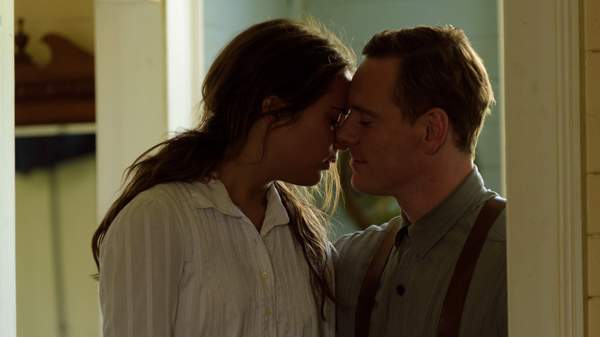Overview
People dream of finding someone who looks at them they way that Michael Fassbender looks at Alicia Vikander in The Light Between Oceans. A World War I soldier turned lighthouse keeper, Tom Sherbourne (Fassbender) has swapped the horrors of combat for the routine and simplicity of his new life — and he never glances anything less than adoringly at Isabel Graysmark (Vikander), the woman who'll become his wife. In a film that is unashamedly a weepie, his stare tells a sometimes heart-swelling, sometimes heartbreaking story, and silently speaks of the ups and downs of life that everyone wants to weather with someone by their side.
An intimate tale working with big, sweeping feelings as well as notions of guilt and forgiveness, The Light Between Oceans is a melodrama through and through. Not that that's a bad thing, necessarily. This adaptation of Australian author M. L. Stedman's 2012 novel is not what might derisively be labelled merely a chick flick. Yes, it may tug at the heartstrings, and focus its plot around marital life and motherhood, but the sentiments this period-set romantic drama stirs up remain unflinchingly real.
The aforementioned couple meet, wed and forge a life together in and around Janus Rock off the coast of Western Australia. They're the only inhabitants living off the mainland, though it seems they'll be joined by the pitter-patter of tiny feet until tragedy strikes on multiple occasions. Then, a lifeboat — or a rowboat, to be exact — brings them a lost baby girl. Keeping her will help them become a family. But unbeknownst to them, it will also tear the child's real mother (Rachel Weisz) apart.
After exploring the complications of romance in the raw and resonant Blue Valentine, and pondering the ties between parents and children in The Place Beyond the Pines, writer-director Derek Cianfrance combines the two in The Light Between Oceans, as though he's been building up to this all along. It may not be the strongest of the three features, but it's as astute in matters of the heart as it is picturesque. Indeed, as far as the latter is concerned, Australian cinematographer Adam Arkapaw, who gave the recent version of Macbeth such an icy, compelling gleam, will have you gazing at the soft, glowing, frequently pink-lit images in the same way that the film's characters gaze at each other.
Cianfrance provides ample space for Fassbender and Vikander to flesh out their loving but troubled characters. There's no mistaking the actors' chemistry, or the hard-earned range of emotions they cultivate, often in no more than their expressions. He conveys Tom's doting affection as well as the war-inspired melancholy he can't quite hide, while she paints Isabel as vibrant and determined, both in happiness and in pain. Even when the film's efforts to evoke tears are a little too evident, Fassbender and Vikander ensure that everything feels, and looks, utterly genuine.
